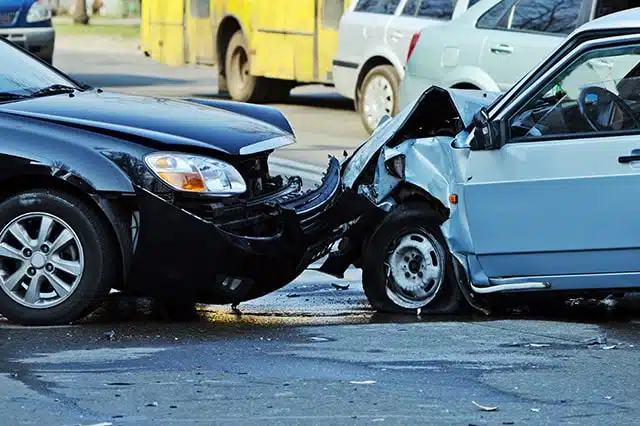Understanding Car Accident Trauma and How Sabbeth Law Can Help You Recover







A Guide on Legal Rights in a Car Accident Trauma
Trauma from car accidents can be more than just physical injuries. Emotional scars can linger, affecting every aspect of a survivor’s life, often manifesting as anxiety, depression, or Post-Traumatic Stress Disorder (PTSD). This silent struggle is as crucial to address as damaged vehicles or broken bones. Understanding the emotional impact of a car accident is vital to truly supporting recovery.
Following a motor vehicle accident, the road to recovery requires more than physical healing; it demands empathy and comprehensive care to navigate the psychological aftermath. Just as we consult medical professionals for physical injuries, seeking legal support is equally important for holistic recovery. Our collaboration with compassionate professionals can help ensure that victims are not alone in their journey.
As we explore the complexities of car accident trauma, it’s valuable to know the support systems available. In Vermont, our team at Sabbeth Law is dedicated to helping individuals rebuild their lives. By addressing both visible and invisible injuries, we aim to foster resilience and justice for every victim. If you’re seeking legal help, consider consulting a Vermont car accident lawyer to secure the support needed for healing.

What Is Car Accident Trauma?
Car accident trauma isn’t just about physical injuries; it encompasses emotional and psychological wounds as well. A collision can lead to both visible injuries and invisible scars. But what exactly constitutes this trauma beyond the physical wounds?
Physical Injuries
Common injuries from motor vehicle accidents include whiplash, fractures, and head trauma. These conditions may require immediate medical attention and can significantly impact daily life. Understanding the type and severity of these injuries is crucial for effective treatment.
Psychological Effects
Psychological trauma after an accident can be as debilitating as physical injuries. Conditions like PTSD, anxiety, and depression frequently occur. Victims might relive the incident through flashbacks or experience heightened stress during everyday activities.
Individual Manifestations
Trauma manifests differently in everyone. While one person may recover quickly, another might face prolonged psychological struggles. The variability depends on numerous factors, including previous mental health conditions and support systems.
Long-Term Implications
Untreated trauma can wreak havoc on a person’s quality of life, affecting relationships and employment. Some individuals might even struggle to return to work due to debilitating anxiety or physical limitations. The Vermont Department of Health explains that injuries can be prevented by understanding their roots and addressing them effectively.
Addressing Trauma
It is vital to address all aspects of car accident trauma. Not only does it help in physical recovery but also in rebuilding mental stability. Common car crash injuries emphasize the importance of holistic healing processes.
Recognizing Signs Early
Early recognition and intervention are key to preventing long-term effects. By identifying symptoms and seeking appropriate treatment, individuals can improve their recovery prospects and maintain a stable quality of life. For resources on dealing with trauma, the Substance Abuse and Mental Health Services Administration provides valuable guidance.
Contact UsSeeking Medical and Emotional Support
Taking the first step to address both physical and emotional injuries after a car accident is crucial. Immediate medical attention is essential, even when injuries seem minor. A quick assessment can reveal hidden traumas and initiate effective treatment, supporting both recovery and potential legal claims.
Emotional support is equally important. Many people experience emotional trauma, including symptoms like anxiety, depression, and post-traumatic stress disorder (PTSD). These symptoms might manifest as flashbacks, intrusive thoughts, and hyperarousal, affecting overall well-being.
Therapy can be an effective coping strategy in these cases. Treatments such as cognitive behavioral therapy (CBT) and eye movement desensitization and reprocessing (EMDR) are commonly used. These therapies can help individuals process trauma and begin the healing journey.
Medication such as antidepressants might be prescribed to manage symptoms, which can include acute stress disorder and related phobias. Early intervention often provides the best possible chance for recovery and reduces the impact of these symptoms over time.
Participating in support groups provides additional benefits. Sharing experiences in a supportive environment with others who understand the psychological effects of traumatic events can foster healing. These groups can help rebuild confidence and promote recovery, offering a network of care and understanding.

Legal Rights After a Car Accident
Experiencing a car accident can leave one dealing with more than just physical injuries; the emotional impact is also significant. Understanding your legal rights is essential to navigating these challenges effectively.
After an accident, compensation can encompass medical expenses, lost wages, and pain and suffering. Successful claims often hinge on evidence of trauma-related injuries, which underlines the necessity for thorough documentation.
- Medical Expenses: Covers hospital bills, rehabilitation, and related therapies.
- Pain and Suffering: Acknowledges both physical and emotional distress.
- Lost Wages: Compensates for income lost due to inability to work post-accident.
Legal support helps ensure you get adequately compensated, especially when dealing with unforeseen financial stress from costly treatments or extended recovery periods. Consulting with legal professionals can safeguard your rights and maximize compensation claims.
The importance of thorough documentation cannot be overstated. Medical records and therapy notes are invaluable in building a strong case. They serve as concrete evidence of trauma, enhancing the credibility of any claims we pursue.
Contact UsSteps To Take After a Car Accident
Experiencing a car accident in Vermont can be overwhelming and chaotic. Understanding the immediate steps to take is crucial for safety and legal reasons.
First, check for injuries among all involved parties. If anyone requires medical attention, call emergency services without delay. Ensuring safety is paramount. If your vehicle is operational, move it to a safe area to prevent further accidents.
Next, document the accident. Take photographs of the scene, damages, and any visible injuries. Collect contact details from witnesses, as their statements might be essential.
Seeking medical attention is vital, even if there are no immediate symptoms. Some injuries might not be apparent right away, but early medical documentation can be crucial for any future claims.
Contacting a Vermont accident lawyer quickly is also beneficial. Legal professionals can help preserve evidence, navigate insurance claims, and ensure compliance with statutes of limitations. Our team at Sabbeth Law offers free initial consultations, providing an opportunity to understand your options.
Defensive driving courses can be beneficial post-accident, as they offer skills and techniques to avert future incidents. It’s a proactive approach to enhance safety on the road for everyone involved.
These steps help manage the immediate aftermath and long-term implications of a car accident, ensuring both safety and rights are protected.

Let Sabbeth Law Help You Fight for the Compensation You Deserve
Navigating the aftermath of a car accident can feel daunting. In Vermont and New Hampshire, it’s essential to have a trusted ally in your corner. At Sabbeth Law, we are here to help you through the complexities of legal proceedings to secure the compensation you deserve.
Our firm practices personal injury cases, including those involving car accidents. With our experience and experience, we focus on understanding your unique circumstances and their impact on your daily life. This personalized approach ensures that your story is fully and accurately represented.
Our commitment to your case means you never face these challenges alone. We take pride in representing victims who need a strong voice to advocate for their rights. Our aim is not just to win cases but to truly make a difference for our clients.
If you are still unsure of the next steps, consider reaching out to us for a free consultation. Let us assess your situation and provide the guidance you need to move forward.
Contact UsPractice Areas
Client Testimonials
LUKE PARMENTER“Immediately after my son’s injury at work, he was treated poorly. Over the course of the next few days it became even worse, so I called Mike and he and Crystal have been absolute lifesavers during the process. Mike is not your typical stuffed suit lawyer who only cares about the bottom line he genuinely cares about his clients and his assistant Crystal is beyond amazing! My thanks to you both!”
Client Testimonials
“Immediately after my son’s injury at work, he was treated poorly. Over the course of the next few days it became even worse, so I called Mike and he and Crystal have been absolute lifesavers during the process. Mike is not your typical stuffed suit lawyer who only cares about the bottom line he genuinely cares about his clients and his assistant Crystal is beyond amazing! My thanks to you both!”
LUKE PARMENTER
“I could never ask for a better attorney, to fight for me, to believe in me, and have faith in me, than what I found in Mike Sabbeth, He doesn’t treat you like a client, he treats you as if you are one of his own family members, He will fight for you, with all he has, and is ALWAYS up front and honest with you about everything!”
SANDRA DRUGE
